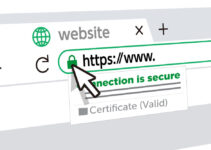The internet has become so intertwined with our everyday life. Internet access has become a must-have utility for businesses to ensure the smooth running of operations such as credit card processing and customer communication. Homes also haven’t been left out, especially in this new era where working from home has become the new normal and the growth of social media and video streaming services has increased.
While it’s evident that the internet is necessary in the modern world, one challenge you’ll encounter is finding a suitable internet service provider (ISP). All this confusion when searching for the right internet provider is brought about by numerous package options, unclear contract details, and a lot of fine print. Due to this, you’re highly likely to make the wrong choice if you’re not careful. To help you out with this decision, here’s an outline of the factors you should consider when choosing an ISP.
1. Types Of Connections Available

Source: thisissierraleone.com
The kind of internet connection you choose has a significant impact on the speed you’ll get. With internet technologies quickly evolving, you should take your time to know which one best works for you. Usually, the connection you should go for will depend on your location as certain types of internet services can’t be accessed in some areas.
Therefore, before anything else, make it a point to find out the kinds of internet services available in your region. You may come across any of the following:
- Digital Subscriber Line (DSL) Internet: This is provided by a telecommunication company and delivers broadband access using standard phone lines. However, it has speed limitations.
- Cable Internet: You can get this from cable companies, and with it, data is transmitted via coaxial cable TV lines. It’s popular since it provides greater speeds than the DSL, but its speed can decrease considerably during busy hours of the day.
- Fiber-Optic Internet: This uses fiber-optic cables that directly run from the internet provider to your business establishment or home. It’s the fastest type of internet connection, and speeds aren’t affected by weather conditions. Nonetheless, it can be somewhat expensive and not accessible in every region.
- Fixed Wireless Internet: Internet is transmitted from a modem through a radio signal to a tower. Because of that, the signals may be greatly affected by natural elements and forces.
- Satellite Internet: Internet transmission is provided by satellites up in space to your satellite dish. Satellite internet speed is rather slow, and it’s only an ideal choice if you live in a rural area where the previously mentioned options aren’t available.
2. The Internet Speed
In business, time is money, so you don’t want to take longer to complete your day-to-day tasks due to slow internet. According to OCCOM, choose an internet service provider that guarantees to offer you internet speeds that meet your home or business needs. This is crucial because the last thing you want is to waste your time or that of other people, which can affect their efficiency and productivity.
To know the ideal speed to go with, observe and assess your internet usage closely. Start by estimating the number of persons who’ll be using the internet. Also, you should determine how it’s being used. For example, greater speeds are necessary when many office tasks have a Voice over Internet Protocol (VoIP) phone system or are web-based. Knowing such facts will help you decide which ISP to choose and ensure that it can meet your speed and bandwidth requirements.
3. The ISP’s Reputation

Source: germanymore.de
There’s no better way to get valuable insights on whether a specific ISP is reliable than by getting other people’s opinions on the quality of their services. Therefore, you should always do exhaustive research on a particular ISP provider before deciding to hire them.
You can accomplish this by reaching out to other local businesses using the ISP’s services or reading online reviews on Google and Yelp. In doing this, you’ll be able to pinpoint which ISP offers high-quality services.
4. Security
Cybersecurity is a real concern nowadays, with hackers more active than ever before trying to access your personal details and use them for their own gain. Because of this, you must choose an ISP that promises robust internet security. Otherwise, essential business data might end up falling into the wrong hands and cost you a significant amount of money to retrieve.
It’s therefore imperative to opt for an ISP that also offers anti-spyware, anti-spam, anti-malware and antivirus protection. Also, it would be ideal if they also included backup protection in case of an unfortunate event such as a system or network crash. With such security protocols in place, you’ll have peace of mind knowing that your private information is safeguarded thanks to the encryption of your internet connection.
With an encrypted internet network, you also get to monitor your online activity. You’ll be able to notice any suspicious activity and take necessary action immediately. Moreover, you get to ensure that only authorized individuals can access the network.
5. Customer Support

Source: reviews.com
At one point, you’ll need help from a customer support representative. Such assistance is required when you’re looking for technical support, experiencing service issues, or aiming to ask questions regarding product add-ons or billing. Because all of those are issues you can’t resolve on your own, you need to choose a company that guarantees reliable customer service support before making any payment.
With the internet today crucial for the running of businesses, customer support should be accessible 24/7. Otherwise, you might end up experiencing downtime leading to huge losses to your company. Therefore, picking an ISP that assures you of 24/7 customer support shouldn’t be a matter to overlook. Moreover, the customer service representatives need to be experts, with a perfect grasp of connectivity and networking issues. It would also be best if the internet service provider gave you a dedicated support line if you experience any problems.
Takeaway
While finding the right internet service provider might seem complicated and overwhelming, this doesn’t have to be the case as long as you know what you want. If you’re conflicted about which internet provider to go with, think about the factors discussed above so you won’t skip the most important details you should look into.







